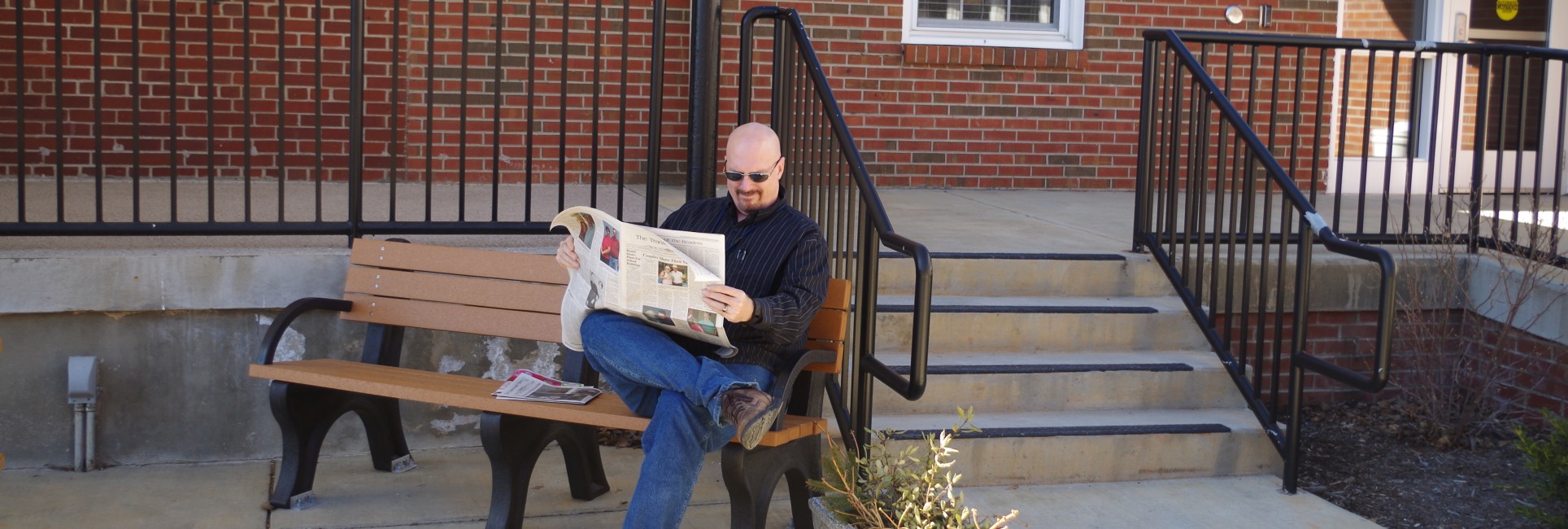Transylvania County Commissioner Page Lemel joined fellow members of the North Carolina Association of County Commissioners’ (NCACC) Board of Directors for a briefing on the NCACC’s return to its downtown Raleigh offices in the Quorum Center, which was severely damaged as a result of the historic, five-alarm fire in downtown Raleigh in 2017. The briefing was part of NCACC’s Board of Directors meeting held May 31- June 1 in Buncombe County. The Board also discussed other important topics, including Medicaid Transformation and a statewide public education campaign called More Powerful NC, which launched this spring and aims to combat the opioid crisis.
Commissioner Lemel finds great value in being a part of the NCACC Board. “Not only does the board work to address concerns impacting all 100 counties, but the time together gives me an opportunity to gain ideas and solutions to problems from other commissioners from across the state. Building these connections is valuable to the work of our board of county commissioners.”
Holly Jones, NC Department of Justice, Community Partnerships/Outreach Coordinator delivered a presentation on More Powerful NC, an initiative to educate the public and help local government officials,parents, educators, coaches, and others in the community take action to address the opioid epidemic.More information and community toolkits are available at www.MorePowerfulNC.org.
In 2017, NCACC spearheaded a similar initiative led by Fred McClure, NCACC Past President, and Davidson County Commissioner. The County Leadership Forum on Opioid Abuse delivered planning materials and fact sheets to all 100 counties to facilitate community meetings for stakeholders to better understand how each county is affected by the crisis and generate community-led solutions. The initiative was a huge success with over 40 counties holding these forums throughout the year. Initiative materials are available at www.ncacc.org/opioidresources.
The Board also discussed forthcoming changes related to Medicaid Transformation, which will transition North Carolina’s Medicaid program from a fee-for-service system to a managed care system that integrates physical and mental health. Specifically, the Board discussed a request from the North Carolina Department of Health and Human Services (NCDHHS) for county input on establishing regions for Tailored Plans coverage, which will provide care for Medicaid beneficiaries with the most significant behavioral health needs. NCACC facilitated a process to develop recommendations, which will result in a report to NCDHHS. Commissioner Lemel served on the NCACC’s special committee that was tasked to make recommendations to NCDHHS on possible realignment of mental health agencies. “Obviously, any potential change would have direct impact on our citizens, and it was important to me to represent the interests of our citizens in this area of Medicaid Transformation conversation,” said Lemel. She also continues her work in this area as the Chair of the NCACC Health and Human Services Steering Committee and as a member of the VAYA Health Board of Directors.
BOARD OF COMMISSIONERS COUNTY MANAGER
Mike Hawkins, Chair Jaime Laughter
W. David Guice, Vice-Chair 828-884-3100
Will Cathey Fax 828-884-3119
Jason Chappell
Page Lemel 101 South Broad Street
Brevard, NC 28712
Kevin Austin, NCACC President Elect and Yadkin County Commissioner appointed a committee led by
Co-Chairs Ronnie Beale, Macon County Commissioner and Catherine Graham, Moore County
Commissioner to gather input from LME/MCOs, county commissioners and managers, DSS and Public
Health Association leaders, North Carolina’s Consumer and Family Advisory Committee and other
stakeholders. Co-Chairs Beale and Graham updated the Board on the LME/MCO Committee’s work.
The Board was also briefed on deliberations at the General Assembly on the 2019-2021 fiscal biennium
state budget, and updates on county legislative priorities including increasing state funding for public
school facilities, expanding broadband access and repealing the authority for local boards of education to
sue boards of county commissioners over public school appropriations.

